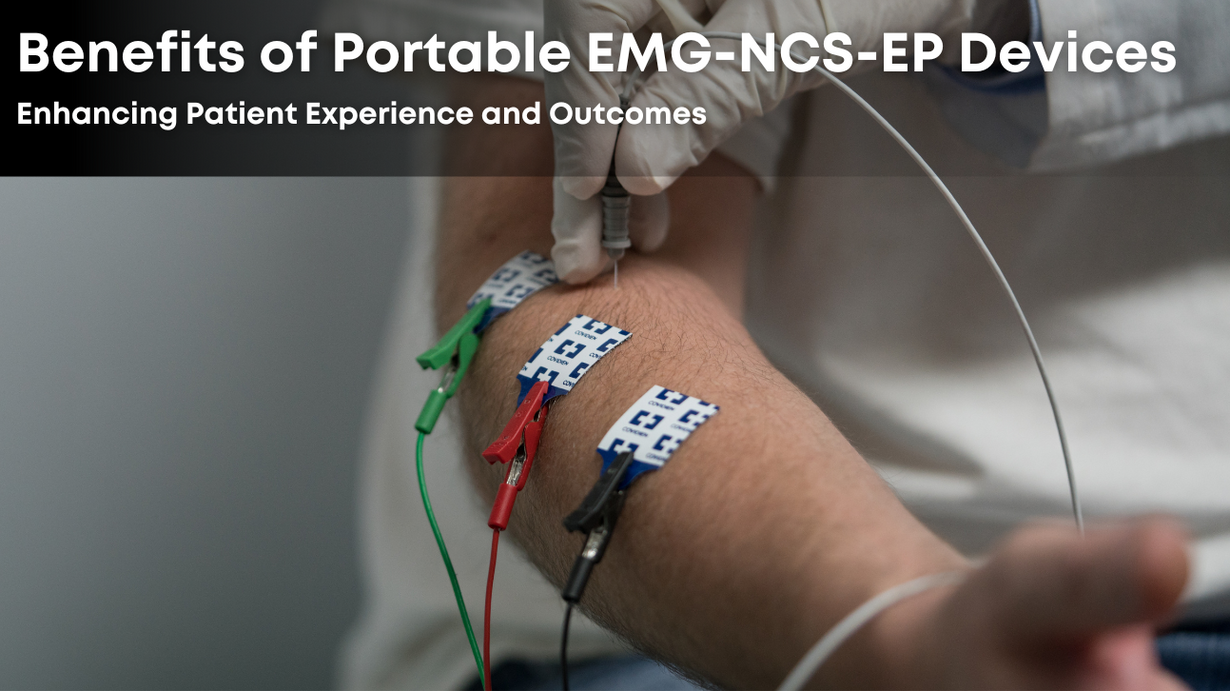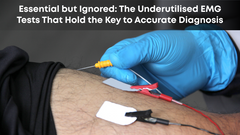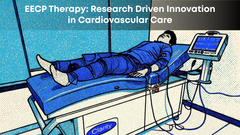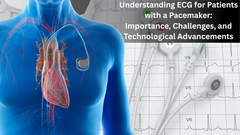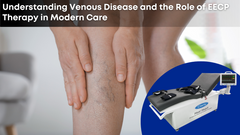Benefits of Portable EMG-NCS Devices: Enhancing Patient Experience and Outcomes
In today’s healthcare landscape, technology plays a crucial role in improving patient care and operational efficiency. Among the many advancements, portable Electromyography and Nerve Conduction Studies (EMG-NCS) devices stand out for their potential to revolutionize neuromuscular diagnosis. These devices offer significant clinical and financial benefits, enhancing both patient experience and outcomes.
The Clinical Value of EMG-NCS Devices
EMG-NCS devices are essential tools in diagnosing a variety of neuromuscular disorders. These conditions include neuropathies, myopathies, carpal tunnel syndrome, and other nerve or muscle-related issues. Traditionally, EMG-NCS testing was confined to specialized labs due to the size and complexity of the equipment. However, the advent of portable EMG-NCS devices has dramatically changed the landscape, making these diagnostic tests more accessible and efficient.
> Early Diagnosis and Intervention: Portable EMG-NCS devices allow for early detection of neuromuscular disorders. Early diagnosis is critical in managing and treating conditions before they progress, leading to better long-term outcomes for patients. These devices enable healthcare providers to perform tests quickly and easily, even in outpatient settings, allowing for prompt intervention.
> Improved Diagnostic Accuracy: Modern portable EMG-NCS devices are equipped with advanced technology that enhances the accuracy of nerve conduction studies and electromyography. Accurate results are essential for developing effective treatment plans and avoiding misdiagnosis, which can lead to unnecessary treatments or delayed care.
> Versatility in Various Healthcare Settings: Portable EMG-NCS devices can be used across a wide range of healthcare environments, from hospitals and clinics to home care and remote locations. This versatility ensures that patients receive timely and appropriate care, regardless of their location, ultimately improving patient outcomes.
> Enhanced Patient Comfort: Traditional EMG-NCS testing can be uncomfortable for patients due to the invasive nature of the tests and the need for multiple appointments. Portable devices streamline the testing process, often requiring fewer visits and reducing patient anxiety. The convenience of having tests performed in familiar environments, such as a local clinic or even at home, contributes to a better overall patient experience.
Financial Considerations: The Cost-Benefit Analysis
Investing in portable EMG-NCS devices is not just about improving patient care; it also makes sound financial sense for healthcare providers. The cost-benefit analysis of these devices reveals several advantages that can lead to a positive return on investment (ROI).
> Increased Revenue Streams: By incorporating portable EMG-NCS devices into their practice, healthcare providers can expand their service offerings. This diversification can attract more patients, particularly those who require frequent monitoring or live in remote areas. Offering in-house diagnostic services can also reduce the need to refer patients to specialized labs, keeping revenue within the practice.
> Reduced Operational Costs: Traditional EMG-NCS testing often involves significant overhead, including the costs associated with maintaining specialized lab equipment and staff. Portable devices reduce these costs by eliminating the need for dedicated space and specialized personnel. Additionally, the ability to perform tests on-site or in the field can reduce patient transport costs and associated logistical expenses.
> Efficiency and Productivity Gains: Portable EMG-NCS devices streamline the diagnostic process, allowing healthcare providers to perform tests more quickly and efficiently. This increase in productivity enables practices to see more patients within the same time frame, optimizing resource utilization and improving overall financial performance.
> Long-Term Savings: While the initial investment in portable EMG-NCS devices may seem significant, the long-term savings are substantial. Reduced operational costs, increased patient throughput, and the ability to offer a broader range of services contribute to a positive ROI over time. Furthermore, the enhanced patient outcomes associated with these devices can lead to higher patient satisfaction and retention rates, which are critical for the financial health of any practice.
Enhancing Patient Experience: A Key to Success
In today’s competitive healthcare environment, patient experience is a key differentiator. Portable EMG-NCS devices play a crucial role in enhancing this experience by making diagnostic testing more convenient, comfortable, and accessible.
> Convenience and Accessibility: Patients no longer need to travel long distances to specialized labs for EMG-NCS testing. Portable devices allow these tests to be conducted in a variety of settings, including local clinics, nursing homes, and even the patient’s home. This accessibility is particularly beneficial for elderly patients or those with mobility issues.
> Shorter Wait Times: The portability and efficiency of these devices mean that patients can receive testing and results more quickly. This reduces the anxiety associated with waiting for diagnostic information and accelerates the start of treatment, leading to better health outcomes.
> Minimized Discomfort: The streamlined process of portable EMG-NCS testing often means fewer needles and shorter testing times, which can significantly reduce patient discomfort. The ability to perform tests in a familiar or comfortable environment further alleviates patient stress, contributing to a more positive experience.
> Patient Empowerment Through Education: Portable EMG-NCS devices often come with user-friendly interfaces that allow healthcare providers to explain the testing process and results in real-time. This transparency empowers patients by helping them understand their condition and the necessary steps for treatment, fostering trust and satisfaction with the care they receive.
Real-World Impact
The integration of portable EMG-NCS devices into clinical practice has already shown significant benefits in real-world scenarios. For example:
> Rural Health Clinics: In rural areas where access to specialized diagnostic labs is limited, portable EMG-NCS devices have made it possible for clinics to offer comprehensive neuromuscular assessments on-site. This has led to earlier diagnosis and treatment of conditions that would otherwise go undetected until they reached advanced stages.
> Occupational Health**: Employers are increasingly using portable EMG-NCS devices to assess workplace-related injuries quickly. This capability allows for faster return-to-work decisions and helps in tailoring rehabilitation programs, reducing overall downtime and costs associated with worker injuries.
> Home Healthcare: Portable EMG-NCS devices are becoming an integral part of home healthcare, particularly for elderly patients or those with chronic conditions. Home-based testing reduces the need for hospital visits, lowers healthcare costs, and provides patients with the comfort of receiving care in their own homes.
Conclusion: The Future of Portable EMG-NCS Devices
The benefits of portable EMG-NCS devices extend beyond the immediate financial and clinical advantages. These devices represent a significant step forward in the evolution of neuromuscular diagnostics, making high-quality care more accessible, efficient, and patient-centered.
As healthcare continues to evolve, the integration of portable technologies like EMG-NCS devices will be critical in meeting the growing demand for personalized and convenient patient care. For healthcare providers, the investment in these devices not only enhances diagnostic capabilities but also positions them as leaders in delivering patient-centered care, ultimately driving long-term success and sustainability in an increasingly competitive market.


